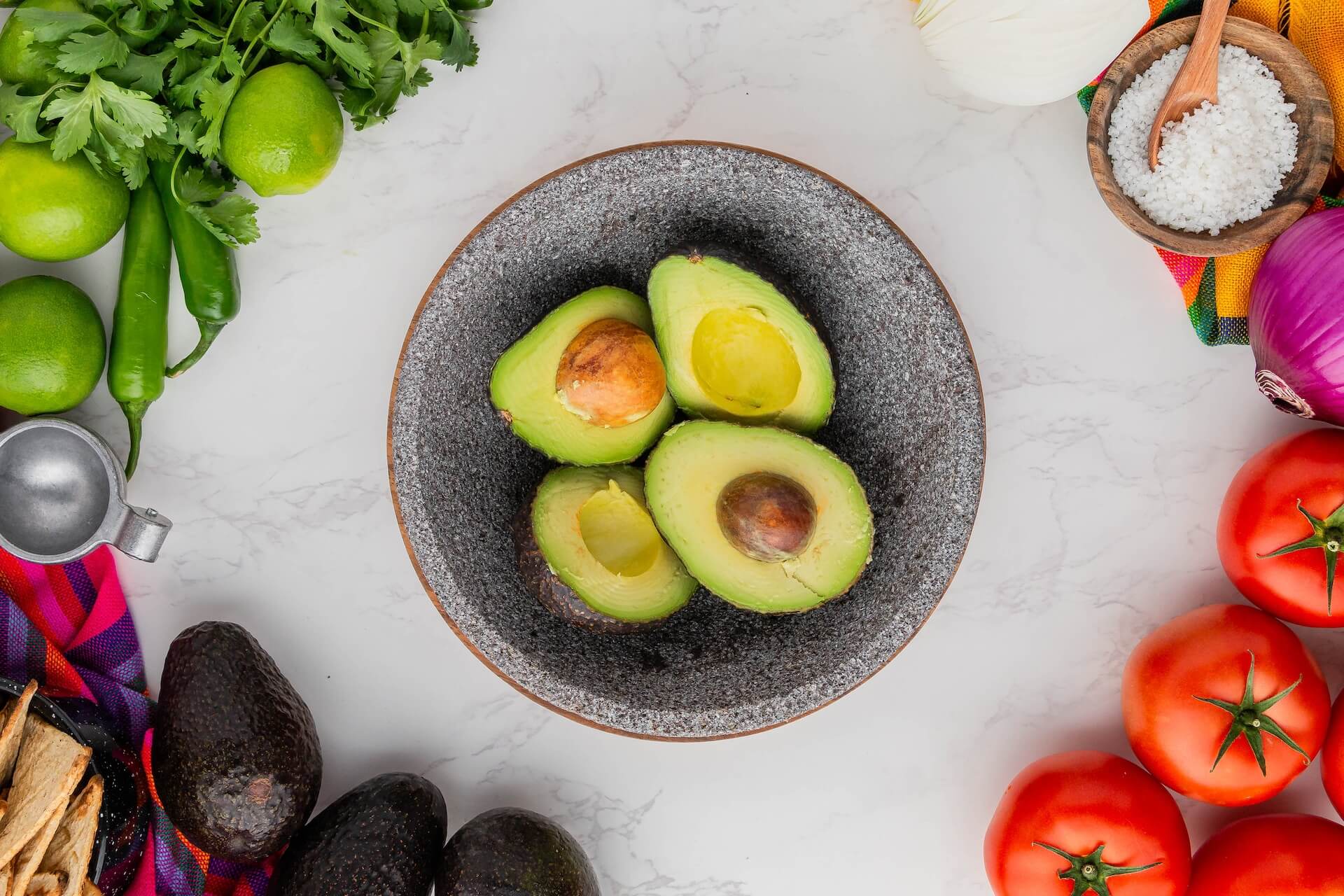Coconut Glycemic Index: Health Benefits

Coconuts are a nutrient-dense plant food widely available worldwide and come in many forms, including coconut milk, coconut oil, coconut sugar, and coconut cream. Coconuts are the fruit of the coconut palm tree (Cocos nucifera) and are considered one of the most naturally widespread fruit trees on the planet.¹ Native to Southeast Asia and the islands between the Indian and Pacific oceans, coconuts are popular for their flavor, culinary uses, and health benefits.¹
This article will explore how coconuts may impact blood sugar levels and the health benefits of including this fruit alternative in your diet.
Glycemic Index Table
The glycemic index for coconut is 51, which is considered to be in the low glycemic index range. This rating means that eating coconut will not cause rapid spikes in blood sugar levels and is a great option for those looking to maintain stable blood sugar levels.
However, since coconuts come in numerous forms, it is important to note that the above glycemic index is for raw coconut fruit (meat). The glycemic index of coconut milk is 41, which is still in the low glycemic index range. The glycemic index for coconut sugar and coconut flour is 35 and 65, respectively.
The below glycemic index and glycemic load data is for 55 grams of raw coconut meat: ¹ ²
Glycemic Index
51
Serving Size
100g
Carbohydrate* per Serving (g)
7.6 g
GL per Serving
4.00

Nutritional Facts
Coconuts are unique from other fruits, mostly containing fats instead of carbohydrates.³ The minerals in coconuts are involved in important processes in the body. Specifically, coconuts are high in manganese, which is essential for bone health and the metabolism of carbs, proteins, and cholesterol.⁴
The nutritional information below is for 100 g (3.5 oz) of raw, unsweetened, dried coconut meat.³
Calories
354 kcal
Carbs
15.2 g
Protein
3.33 g
Fiber
9 g
Cholesterol
0 mg
Vitamins
B6 (0.06 mg), C (3.3 mg), Magnesium (32 mg), Phosphorus (113 mg)
Sodium
20 mg
Total Fat
33.5 g
Is Coconut Good for Weight Loss?
Coconut meat could aid individuals in their weight loss journey. Studies have suggested that the MCTs in coconut meat could promote satiety, calorie burning, and fat burning, supporting weight loss.²⁰ ²¹ ²² The fiber content of coconuts can also increase feelings of fullness and curb overeating.²³ ²⁴
A 90-day study with 8 adult participants found that supplementing with 1.3 cups of fresh coconut daily caused significant weight loss, compared with groups that supplemented with peanuts and peanut oil.²⁵
If you are looking for ways to incorporate coconut into your meals, here are some ideas to try out:
- Substitute coconut milk in place of regular milk in your coffee
- Add a tablespoon of coconut oil to a protein shake
- Use coconut water in place of alcohol in cocktails
- Use coconut as a topping on oatmeal
Is Coconut Safe for People Living with Diabetes?
Coconuts are low in carbohydrates and high in fiber and fat, which can be beneficial for those looking to control their blood sugar levels. One review suggested that coconut oil can help lower blood sugar levels due to its anti-inflammatory properties and antioxidant content.16
Another study involving participants with metabolic syndrome found that replacing fats with virgin coconut oil improved triglyceride levels and reduced fasting blood sugar levels after four weeks compared to the control group.¹⁷
The high fiber content of coconut meat also helps slow digestion and improves insulin resistance.¹⁸ However, one recent review concluded that adding coconut fat to meals could increase insulin resistance.¹⁹ More research is needed to better understand the long-term effects of coconut on blood sugar regulation.
Allergies
Coconut allergies are extremely rare; however, they can occur. Symptoms of a coconut allergy include itchiness of the mouth, lips, or throat, swelling, and redness. In severe cases, allergic reactions can cause hives, difficulty breathing, and anaphylaxis. Please consult a healthcare professional if you suspect an allergy, sensitivity, or intolerance to coconut.
Contact dermatitis is common if you use skincare products and shampoos containing coconut. This may appear as an itchy, blistering rash. Contact your healthcare provider or dermatologist if you experience this condition.

FAQs
The glycemic index (GI) is a measure of how quickly a carbohydrate-containing food raises blood sugar levels compared to a reference food, usually glucose. It ranks foods on a scale from 0 to 100, with higher values indicating a faster rise in blood sugar. The glycemic index (GI) scale is typically categorized as follows: Low GI [55 or less], Medium GI [56-69], High GI [70 or higher]. Foods with a high glycemic index digest rapidly and can cause dramatic fluctuations in blood glucose or glucose spikes.
Glycemic load (GL) takes into account both the quality (glycemic index) and quantity (carbohydrate content) of carbohydrates in a specific serving of food. It is a measure of how much a particular food will raise blood sugar levels. GL is calculated by multiplying the glycemic index of a food by its carbohydrate content and dividing it by 100. It provides a more accurate representation of the overall impact of a food on blood sugar compared to the glycemic index alone.
There is some evidence to suggest that coconut oil may have a positive effect on insulin sensitivity, but more research is needed to confirm this. Some studies have shown that consuming coconut oil may improve insulin sensitivity and reduce blood sugar levels in people with type 2 diabetes. However, other studies have found no significant effect on insulin levels. It is important to note that coconut oil is high in saturated fat and should be consumed in moderation as part of a balanced diet. It is always best to consult with a healthcare professional before making any significant changes to your diet.
Yes, coconut is low glycemic due to its high fiber and healthy fat content, which slows down the absorption of glucose into the bloodstream.
Yes, people living with diabetes can eat coconut in moderation as it has a low glycemic index and contains healthy fats. However, it is important to consider the overall carbohydrate intake and monitor blood sugar levels. Consult a healthcare professional for personalized advice.
References
- Lima, E. B., Sousa, C. N., Meneses, L. N., Ximenes, N. C., Santos Júnior, M. A., Vasconcelos, G. S., Lima, N. B., Patrocínio, M. C., Macedo, D., & Vasconcelos, S. M. (2015). Cocos nucifera (L.) (Arecaceae): A phytochemical and pharmacological review. Brazilian journal of medical and biological research = Revista brasileira de pesquisas medicas e biologicas, 48(11), 953–964. https://doi.org/10.1590/1414-431X20154773
- The University of Sydney. (2023, May 1). Glycemic Index – Glycemic Index Research and GI News. https://glycemicindex.com/
- USDA FoodData Central. (2019, Apr 1). Food Details - Nuts, coconut meat, raw. Retrieved from https://fdc.nal.usda.gov/fdc-app.html#/food-details/170169/nutrients
- Erikson, K. M., & Aschner, M. (2019). Manganese: Its Role in Disease and Health. Metal ions in life sciences, 19, /books/9783110527872/9783110527872-016/9783110527872-016.xml. https://doi.org/10.1515/9783110527872-016
- Widianingrum, D. C., Noviandi, C. T., & Salasia, S. I. O. (2019). Antibacterial and immunomodulator activities of virgin coconut oil (VCO) against Staphylococcus aureus. Heliyon, 5(10), e02612. https://doi.org/10.1016/j.heliyon.2019.e02612
- Centers for Disease Control and Prevention. (2019, Feb 19). MRSA. https://www.cdc.gov/mrsa/index.html
- Peedikayil, F. C., Remy, V., John, S., Chandru, T. P., Sreenivasan, P., & Bijapur, G. A. (2016). Comparison of antibacterial efficacy of coconut oil and chlorhexidine on Streptococcus mutans: An in vivo study. Journal of International Society of Preventive & Community Dentistry, 6(5), 447–452. https://doi.org/10.4103/2231-0762.192934
- de Oliveira, S. F., Lôbo, I. P., da Cruz, R. S., Andrioli, J. L., da Mata, C. P. S. M., Soares, G. A., Santos, E. D. C., Aguiar-Oliveira, E., Franco, M., & da Conceição, A. O. (2018). Antimicrobial activity of coconut oil-in-water emulsion on Staphylococcus epidermidis and Escherichia coli EPEC associated to Candida kefyr. Heliyon, 4(11), e00924. https://doi.org/10.1016/j.heliyon.2018.e00924
- Mahayothee, B., Koomyart, I., Khuwijitjaru, P., Siriwongwilaichat, P., Nagle, M., & Müller, J. (2016). Phenolic compounds, antioxidant activity, and medium chain fatty acids profiles of coconut water and meat at different maturity stages. International Journal of Food Properties, 19(9), 2041–2051. https://doi.org/10.1080/10942912.2015.1099042
- Alkadi H. (2020). A Review on Free Radicals and Antioxidants. Infectious disorders drug targets, 20(1), 16–26. https://doi.org/10.2174/1871526518666180628124323
- Li, Y., Zheng, Y., Zhang, Y., Xu, J., & Gao, G. (2018). Antioxidant Activity of Coconut (Cocos nucifera L.) Protein Fractions. Molecules (Basel, Switzerland), 23(3), 707. https://doi.org/10.3390/molecules23030707
- Illam, S. P., Narayanankutty, A., & Raghavamenon, A. C. (2017). Polyphenols of virgin coconut oil prevent pro-oxidant mediated cell death. Toxicology mechanisms and methods, 27(6), 442–450. https://doi.org/10.1080/15376516.2017.1320458
- Famurewa, A. C., Folawiyo, A. M., Enohnyaket, E. B., Azubuike-Osu, S. O., Abi, I., Obaje, S. G., & Famurewa, O. A. (2018). Beneficial role of virgin coconut oil supplementation against acute methotrexate chemotherapy-induced oxidative toxicity and inflammation in rats. Integrative medicine research, 7(3), 257–263. https://doi.org/10.1016/j.imr.2018.05.001
- Cronin, P., Joyce, S. A., O’Toole, P. W., & O’Connor, E. M. (2021). Dietary fibre modulates the gut microbiota. Nutrients, 13(5), 1655. https://doi.org/10.3390/nu13051655
- Pham, V. T., Dold, S., Rehman, A., Bird, J. K., & Steinert, R. E. (2021). Vitamins, the gut microbiome and gastrointestinal health in humans. Nutrition Research, 95, 35–53. https://doi.org/10.1016/j.nutres.2021.09.001
- Malaeb, S., & Spoke, C. (2020). The Glucose-Lowering Effects of Coconut Oil: A Case Report and Review of the Literature. Case reports in endocrinology, 2020, 8841781. https://doi.org/10.1155/2020/8841781
- Nikooei, P., Hosseinzadeh-Attar, M. J., Asghari, S., Norouzy, A., Yaseri, M., & Vasheghani-Farahani, A. (2021). Effects of virgin coconut oil consumption on metabolic syndrome components and asymmetric dimethylarginine: A randomized controlled clinical trial. Nutrition, metabolism, and cardiovascular diseases : NMCD, 31(3), 939–949. https://doi.org/10.1016/j.numecd.2020.11.020
- Weickert, M. O., & Pfeiffer, A. F. H. (2018). Impact of Dietary Fiber Consumption on Insulin Resistance and the Prevention of Type 2 Diabetes. The Journal of nutrition, 148(1), 7–12. https://doi.org/10.1093/jn/nxx008
- Dhanasekara, C. S., Nelson, A., Spradley, M., Wynn, A., Robohm-Leavitt, C., Shen, C. L., & Kahathuduwa, C. N. (2022). Effects of consumption of coconut oil or coconut on glycemic control and insulin sensitivity: A systematic review and meta-analysis of interventional trials. Nutrition, metabolism, and cardiovascular diseases: NMCD, 32(1), 53–68. https://doi.org/10.1016/j.numecd.2021.09.014
- McCarty, M. F., & DiNicolantonio, J. J. (2016). Lauric acid-rich medium-chain triglycerides can substitute for other oils in cooking applications and may have limited pathogenicity. Open heart, 3(2), e000467. https://doi.org/10.1136/openhrt-2016-000467
- St-Onge, M. P., & Jones, P. J. (2003). Greater rise in fat oxidation with medium-chain triglyceride consumption relative to long-chain triglyceride is associated with lower initial body weight and greater loss of subcutaneous adipose tissue. International journal of obesity and related metabolic disorders: journal of the International Association for the Study of Obesity, 27(12), 1565–1571. https://doi.org/10.1038/sj.ijo.0802467
- Mumme, K., & Stonehouse, W. (2015). Effects of medium-chain triglycerides on weight loss and body composition: a meta-analysis of randomized controlled trials. Journal of the Academy of Nutrition and Dietetics, 115(2), 249–263. https://doi.org/10.1016/j.jand.2014.10.022
- Hervik, A. K., & Svihus, B. (2019). The Role of Fiber in Energy Balance. Journal of nutrition and metabolism, 2019, 4983657. https://doi.org/10.1155/2019/4983657
- Howarth, N. C., Saltzman, E., & Roberts, S. B. (2001). Dietary fiber and weight regulation. Nutrition reviews, 59(5), 129–139. https://doi.org/10.1111/j.1753-4887.2001.tb07001.x
- Vijayakumar, V., Shankar, N. R., Mavathur, R., Mooventhan, A., Anju, S., & Manjunath, N. K. (2018). Diet enriched with fresh coconut decreases blood glucose levels and body weight in normal adults. Journal of complementary & integrative medicine, 15(3), /j/jcim.2018.15.issue-3/jcim-2017-0097/jcim-2017-0097.xml. https://doi.org/10.1515/jcim-2017-0097




























